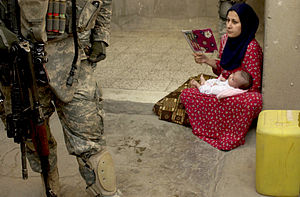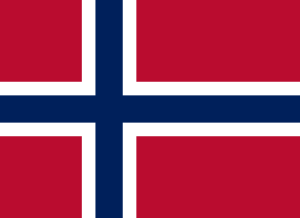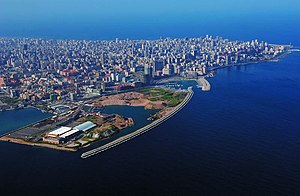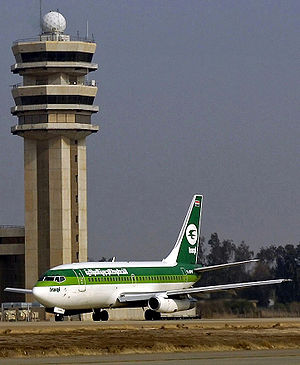Source:
Globalpost
By Don Duncan
The Algerian secret service gave transsexual Randa Lamri an ultimatum: Leave the country within 10 days or risk imprisonment and the defamation of her family.
Lamri, like many persecuted gays, lesbians and transexuals in the region, looked to Beirut for refuge.
“I was scared for my security and for the future of my family,” says Lamri, 39, who came to Lebanon on a tourist visa and immediately set about securing a work visa so that she could stay longer.
A founding member of an underground lesbian, gay, bisexual, transgender and intersex (LGBTI) rights association in Algeria called Abu Nahas, Lamri’s way of life had begun to provoke anonymous death threats from Islamist groups and persistent calls and visits to her workplace and family home from authorities.
Finally, the pressure became too much for her to bear.
“My brother-in-law told me: ‘If you die or go to prison and we find out why, your family will be disgraced and I’ll divorce your sister,’” Lamri says over coffee recently in an east Beirut café. She is tall with long jet-black hair and speaks in hushed words punctuated by the occasional toothy giggle.
Like many of the dozens of LGBTI people who flee to Lebanon from Middle Eastern and North African countries each year, Lamri joined up with a network of acquaintances, many of whom she’d met through activism back in Algeria. Relieved to have escaped the dangers facing her at home, Lamri quickly settled into her new-found freedoms in Lebanon.
“Life is much better here than in Algeria,” she says. “Dressing like a woman in Algeria can lead you to anything from three months to three years in prison. Here, there are no laws against transsexualism.”
Many LGBTI refugees here depart home in such haste that there is not enough time to go through the minimum two-month long visa process to get to Europe or North America. So Lebanon has, for many, become the only feasible refuge. It has a simpler visa procedure (many can get it on arrival at the airport) and enjoys a general perception in the region that its capital Beirut is a liberal, relatively gay-friendly city.
“I think the first place they think of [coming to if they can't get to Europe or North America] would be Beirut, primarily because there is an LGBT infrastructure,” says Rasha Moumneh, researcher for the Middle East and North Africa for
Human Rights Watch. “You have LGBT organizations, you have the UNHCR here, which is very aware of the specificities of LGBT asylum seekers and refugees.”
The “LGBT infrastructure” Moumneh mentions includes the only openly active LGBTI NGO in the region, Helem, as well as various LGBTI-sensitized services such as ReStart, a clinic which offers psychological counseling for refugees fleeing traumatic conditions, a UNHCR office which is familiar with and sensitized to the specific needs and vulnerabilities of the LGBTI community, as well as a pretty vibrant gay scene of bars, cafes and nightclubs.
“I didn’t think Lebanon was going to be as liberal as it is,” says Lamri, who entered the country in 2009.
It is hard to find an accurate figure of how many LGBTI people fleeing their countries arrive in Lebanon yearly. Out of fear of deportation, many stay away from registering themselves with any NGO or with the UNHCR. Many of those who do register, cite other reasons for fleeing, such as war and internal strife in the case of Iraqis and Syrians. The UNHCR office in Beirut says it gets up to two dozen people annually claiming refugee status for reasons related to their sexuality or gender status. Gay rights groups cite similar figures but acknowledge that this may be just the tip of the iceberg. Some activists say the true figure could be as much as triple the UNHCR figure.
From time to time the numbers spike severely, when there are political developments in other countries, sending members of the LGBTI community fleeing. A coordinated campaign in Iraq in 2009, against gay men primarily, led by the Shia Mahadi Army militia and the Sunni Al Qaeda in Mespotamia militia, claimed the lives of hundreds. Iraqi gay men, or men suspected of being gay, were hunted down in a move to “clean” the morality of Iraq which had been “corrupted” by the foreign influence brought by the U.S invasion in 2003.
A Human Rights Watch report details a litany of threats and torture that Iraqi men faced – being burnt alive, being hung in public places, decapitations, castrations, rape, anuses being glued shut. The campaign sent hundreds fleeing, many to Beirut.
Hamdia, a 20-year-old Iraqi gay man living in Beirut, had already fled before the 2009 homophobic campaign of violence, which has made it unlikely he will ever move back. His family fled to Syria in 2006, after his 11-year-old brother was kidnapped by a gang and was released for a $60,000 ransom. Hamida, who goes by a pseudonym, was still in high school at the time and finished it in Damascus, but the $60,000 ransom meant that his family could no longer afford to send him to London for university as planned. He now studies fashion design in Beirut.
“In Syria, you don’t feel safe. You have the secret police and they are watching you,” he says in his apartment in the west Beirut neighborhood of Hamra. “In Iraq, they think Beirut is like Europe and they have this picture that it is perfect. Beirut is better, sure, but it’s not great.”

































 Join our page
Join our page

